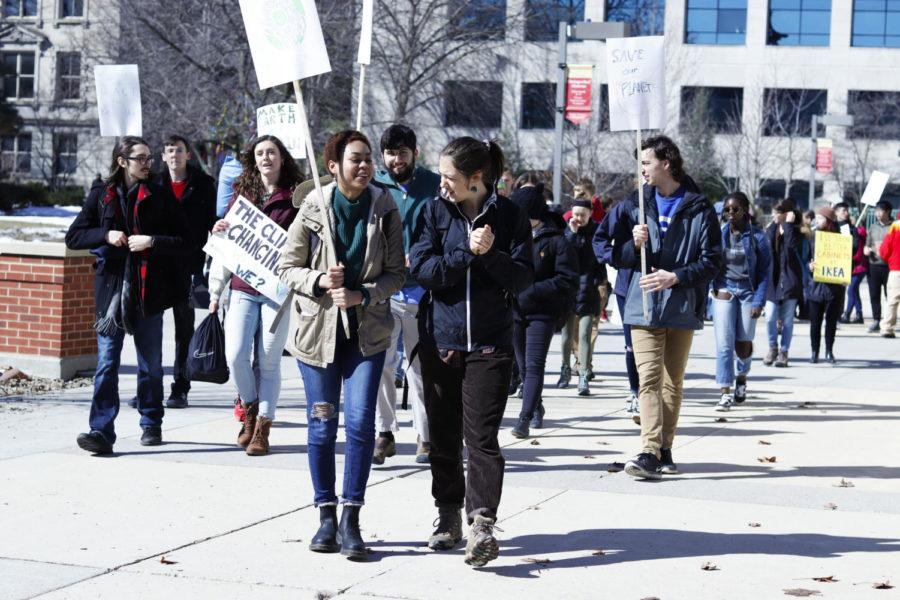Editorial: More states need to tackle climate change
The Climate Reality Campus Corps at Iowa State hosted a youth climate strike and rally March 15 at the Agora on campus. The group marched to the ISU Power Plant, which is the coal/natural gas power plant providing almost all of the energy used on campus, with the rest being electricity purchased from outside campus.
October 7, 2019
As we have all heard, climate change is more prominent now than ever. According to recent research, we only have a couple months (which was first believed to be 12 years) before the damage we have caused to our planet becomes irreversible.
Using reusable straws to save the turtles and reusable water bottles won’t cut it anymore. And although those efforts don’t go unappreciated, a larger action needs to be taken in order to make an impact. We need those who are higher up to take the reigns on which direction climate change will take with the short amount of time we have left.
With all the damage we have caused and continue to produce, it is surprising that we have been able to remain on this planet for as long we have.
Many states have placed new laws beginning in the year 2020 to help against climate change.
First up, Oregon Gov. Kate Brown signed two bills that would ban the use of single-use plastic straws (unless requested) and plastic bags beginning Jan. 2020. However, it excludes bags for produce, meat, dry cleaning and other items alike.
Along with Oregon, the states California, Connecticut, Maine, New York and Vermont passed statewide plastic bag restriction policies.
New York passed a law that would require the state to reduce its carbon pollution to zero by 2050. The downside to this is that it is unclear how they plan to accomplish this and when they will begin, but at least the goal is clear.
More states should follow their examples on tackling climate change. Even if it is something that people may believe is too small to make an impact, something is better than nothing at all.
People need to start taking the issue more seriously before it is too late. Earth is our home and we need to start treating it as such.

















